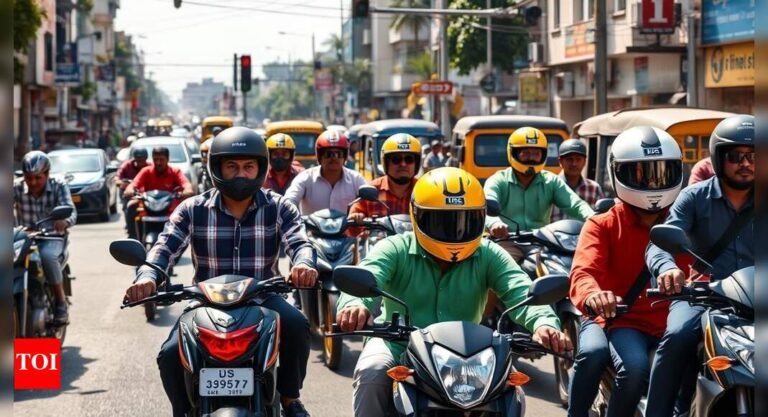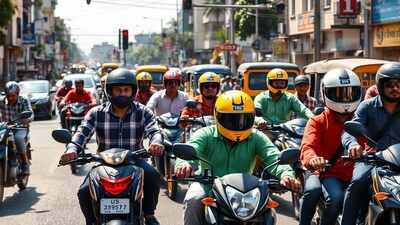The Centre has directed states and local authorities to take strict action against manufacturers and sellers of sub-standard helmets in a bid to enhance road safety for India’s over 21 crore two-wheeler users. In a statement issued Saturday, the department of consumer affairs, along with the Bureau of Indian Standards (BIS), urged consumers to ensure they use only BIS-certified helmets.As per news agency PTI, the department stressed that the sale of non-certified helmets poses a significant risk to public safety and violates the Quality Control Order introduced in 2021. This order makes it mandatory for all two-wheeler helmets to carry the ISI mark as per BIS norms.“With over 21 crore two-wheelers on Indian roads, rider safety is paramount,” the statement said. “The sale of sub-standard helmets compromises safety.”The department has identified widespread non-compliance, especially from roadside vendors and unlicensed manufacturers. BIS has intensified surveillance, conducting over 30 search-and-seizure operations and testing more than 500 helmet samples last year. In Delhi alone, authorities confiscated more than 2,500 non-compliant helmets from nine manufacturers with expired or cancelled BIS licences. Another 500 substandard helmets were seized across 17 roadside and retail locations.Currently, 176 manufacturers across the country hold valid BIS licenses to produce protective headgear.In an earlier initiative, the department of consumer affairs wrote to district collectors and magistrates, instructing them to initiate a nationwide campaign against non-compliant helmet sellers. BIS offices have been asked to work closely with police and district administrations to support enforcement efforts.Earlier, the ministry of road transport and highways proposed amendments to the Central Motor Vehicles Rules to mandate the supply of two BIS-certified helmets at the time of every two-wheeler purchase. As per news agency ANI, the new rule is expected to take effect within three months of its final notification.The government has also proposed that from January 1, 2026, all new L2-category two-wheelers—those with engine capacity above 50cc or speeds exceeding 50 km/h—must come fitted with Anti-lock Braking Systems (ABS) complying with Indian Standard IS14664:2010. These steps are part of broader efforts to reduce accidents and fatalities involving two-wheelers.
Trending
- FPI inflows: Foreign investors pump in Rs 3,839 crore in July; D-street outperforming global markets
- India’s second-hand car market: Poised to cross 6 million sales; over twice as fast as new cars
- India-US talks: Experts urge caution on trade pact; ‘hasty deal under pressure’ could backfire
- Crypto cold war heats up: As Pakistan, Bhutan, and US go all in, where does India stand? Report reveals how the world is weaponising blockchain
- USPS stamp hike: First class Forever stamps price hike; will cost 78 cents from July 13
- Relaxed emission norms for thermal generation to reduce power costs
- UPI revolution: Surpasses Visa with 650 million daily transactions; ‘leading the digital payment revolution!’ says Amitabh Kant
- Gold market outlook: Prices to stay firm next week; risk aversion, weak dollar to fuel gains
- Syria-DPWorld deal: $800 million Tartus port pact signed; post-Assad regime eyes post-war reconstruction
- EU-Indonesia deal: ‘Political agreement’ sealed; free trade pact to be finalised by September



